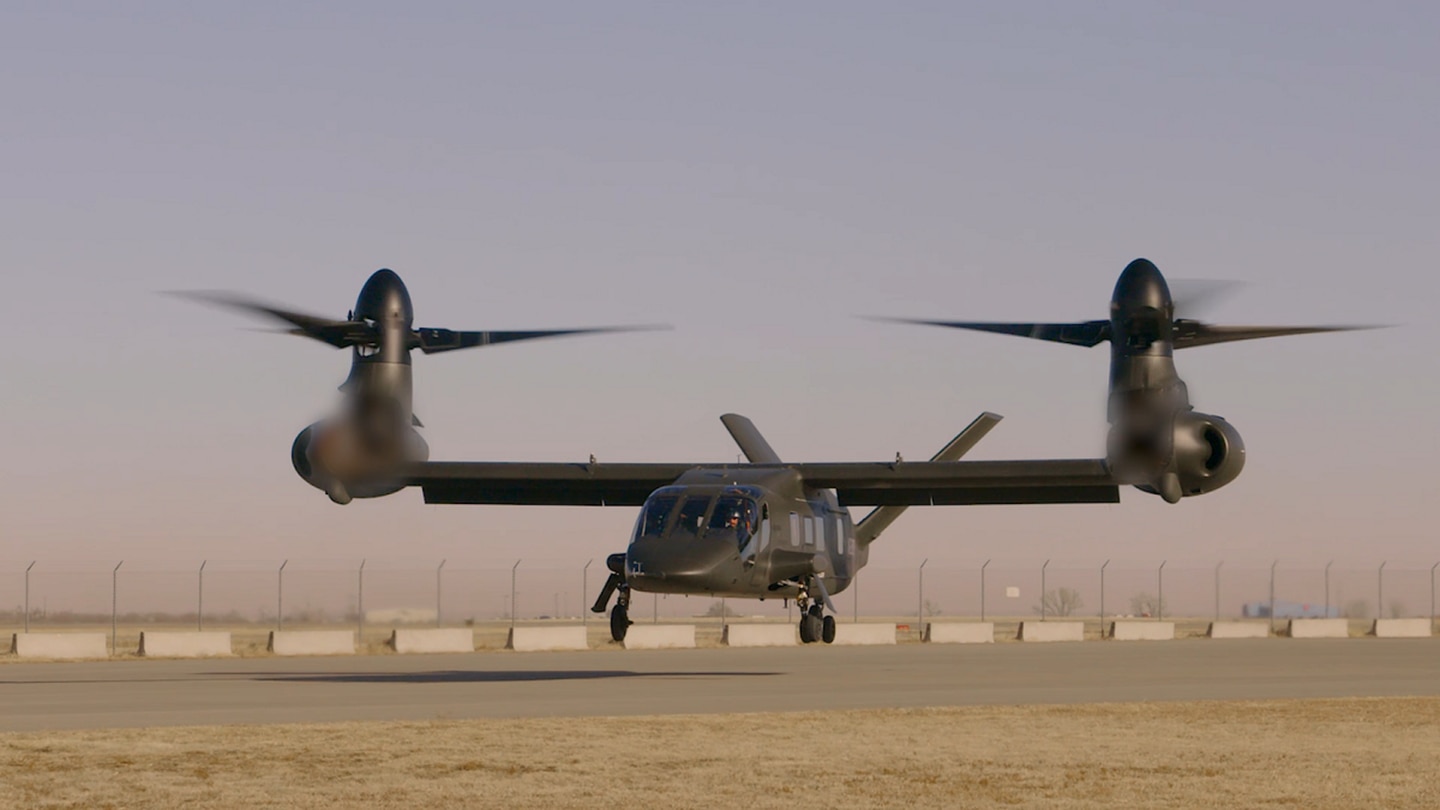WASHINGTON — Textron’s Bell can move forward with building the Future Long-Range Assault Aircraft, the Army’s largest helicopter procurement in 40 years, after the Government Accountability Office rejected a competitor’s protest.
Lockheed Martin-owned Sikorsky filed a protest late last year. Boeing, Sikorsky’s teammate, also filed a protest.
“In denying the protest, GAO concluded that the Army reasonably evaluated Sikorsky’s proposal as technically unacceptable because Sikorsky failed to provide the level of architectural detail required by the [request for proposal],” an April 6 statement from the office reads. “GAO also denied Sikorsky’s various allegations about the acceptability of Bell’s proposal, including the assertion that the agency’s evaluation violated the terms of the solicitation or applicable procurement law or regulation.”
The FLRAA competition pitted head-to-head Bell’s V-280 Valor, a tiltrotor aircraft with Sikorsky and Boeing’s Defiant X, which features coaxial rotor blades. Both aircraft were designed to fit into the same footprint as a Black Hawk.
RELATED
Northrop, Lockheed, Raytheon team up on Navy’s E-XX ‘doomsday’ plane
The deal for the next-generation helicopter is worth up to $1.3 billion and is set to replace about 2,000 Black Hawk utility helicopters. FLRAA won’t serve as a 1-to-1 replacement for existing aircraft, but it will take over the roles of the Black Hawk — long the workhorse of the Army for getting troops to and around the battlefield — around 2030.
“We remain confident the Lockheed Martin Sikorsky and Boeing team submitted the most capable, affordable and lowest-risk Future Long-Range Assault Aircraft solution,” Lockheed said in a statement. “We will review the GAO’s decision and determine our next steps.”
The engineering and manufacturing development stage as well as the low-rate production phase could be worth roughly $7 billion in total. If the Army purchases the full complement of aircraft across the entire life of the fleet, the program could be worth around $70 billion, including potential foreign military sales, the program executive officer for aviation, Maj. Gen. Rob Barrie, said during a Dec. 5 media roundtable following the Army’s selection of Bell.
Army officials have said the service sought to make the FLRAA program decision unassailable. Yet, Army acquisition chief Doug Bush said during the Dec. 5 briefing the service “anticipated [a protest] potentially happening and [has] accounted for that in our timelines.”
Ahead of the decision, Byron Callan, of Capital Alpha Partners, said in an April 4 report he assessed a 25% probability the award would be overturned and believed a successful challenge was not likely, “despite Team Defiant’s (Lockheed Martin/Boeing) protest that elements of the Army’s evaluation of the competing bids were subjective.”
Sustainment cost assessments “could be one conceivable point of friction in how GAO viewed the Army’s evaluation,” Callan added.
There has been consistent support from Congress for the FLRAA program.
Jen Judson is an award-winning journalist covering land warfare for Defense News. She has also worked for Politico and Inside Defense. She holds a Master of Science degree in journalism from Boston University and a Bachelor of Arts degree from Kenyon College.

